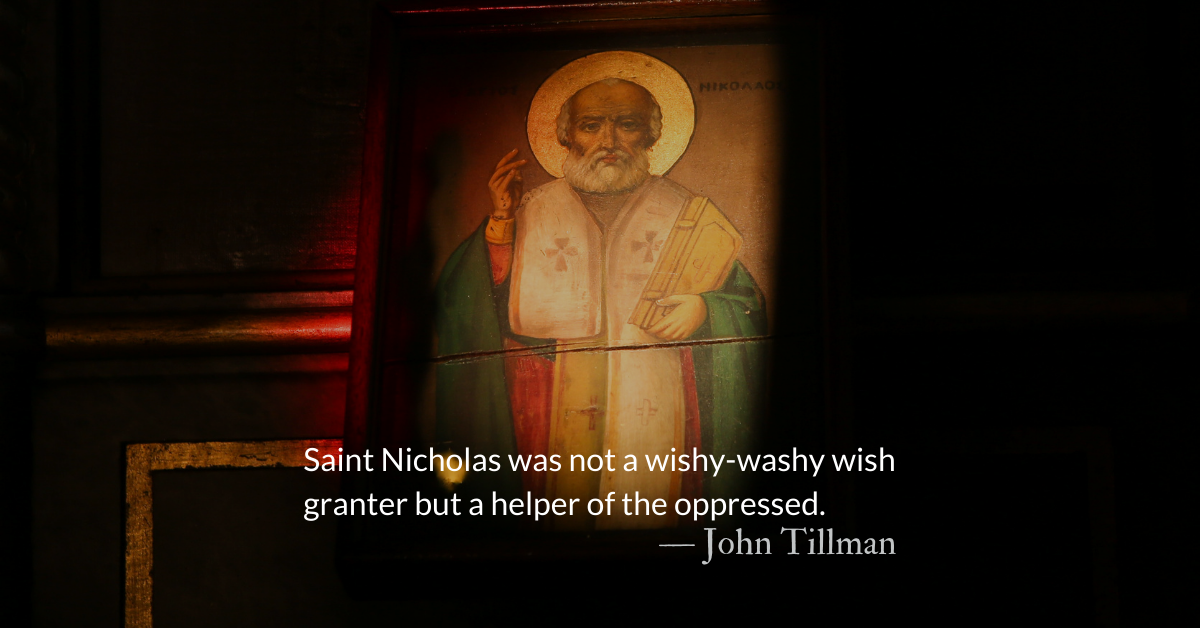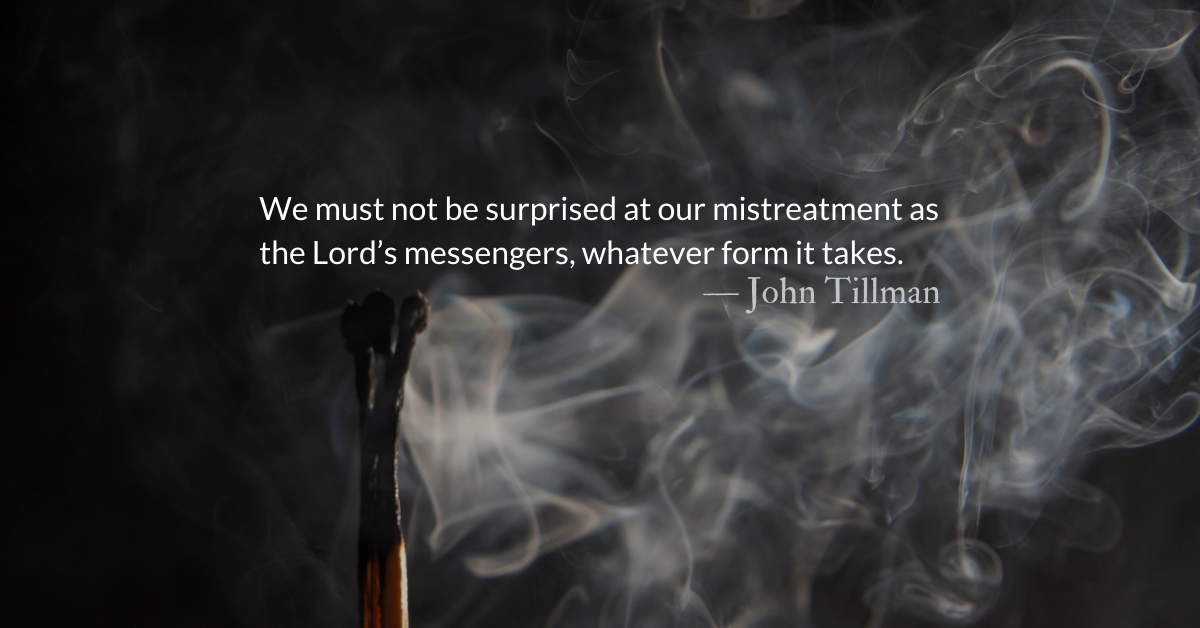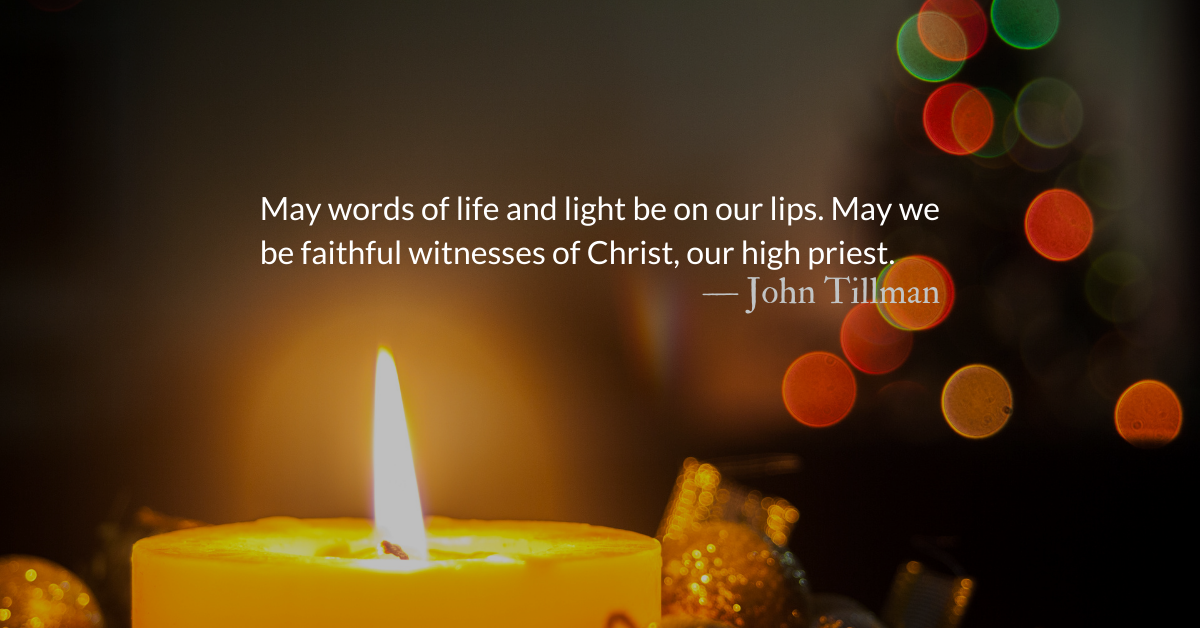Last Day to Donate in 2020: Time never runs out to donate to our ministry and we will be as blessed to receive your donations on January 1st as in December, but for 2020 tax purposes, time IS running out to make donations for this year. Follow the link to our support page to find information about donations and our donation link.
You can also follow this link to write a thank you note to our donors who make it possible for us to continue this ministry. If our ministry is important to you or to your church, but you can’t support us financially, thanking our donors is a great way to show your gratitude as well as participate in our community and help us out.
Merry Christmas and Happy New Year!
Peace,
John
Scripture Focus: Malachi 4.1-3
1 “Surely the day is coming; it will burn like a furnace. All the arrogant and every evildoer will be stubble, and the day that is coming will set them on fire,” says the Lord Almighty. “Not a root or a branch will be left to them. 2 But for you who revere my name, the sun of righteousness will rise with healing in its rays. And you will go out and frolic like well-fed calves. 3 Then you will trample on the wicked; they will be ashes under the soles of your feet on the day when I act,” says the Lord Almighty.
John 21.17-19
17 The third time he said to him, “Simon son of John, do you love me?”
Peter was hurt because Jesus asked him the third time, “Do you love me?” He said, “Lord, you know all things; you know that I love you.”
Jesus said, “Feed my sheep. 18 Very truly I tell you, when you were younger you dressed yourself and went where you wanted; but when you are old you will stretch out your hands, and someone else will dress you and lead you where you do not want to go.” 19 Jesus said this to indicate the kind of death by which Peter would glorify God. Then he said to him, “Follow me!”
Reflection: Beyond Secular Santa—Epiphany
By John Tillman
Secular Santa is just the kind of god some people want.
Santa talks a big game about rewarding the good and punishing the bad, but in the end no one ever gets coal. He’s kindly and jolly and sweet but ultimately meaningless because he never truly stands against evil. That’s fine if the worst “evil” you’ve experienced is pestering from your siblings in a happy suburban home. But for those who have experienced true evil, a winking, smiling expression of justice that never punishes anyone is unsatisfying.
Santa (as typically defined in westernized culture) is really just a god of self-gratification through whom we expect to have our desires and wants fulfilled by magic that comes without a price. Santa is the prosperity gospel version of Jesus. Be good and be blessed. Name it and claim it.
In Santa’s defense, even he has been dumbed down. Saint Nicholas was not a wishy-washy wish granter but a helper of the oppressed. He used wealth to free the enslaved and impoverished not to pile up possessions for the already rich. He is also remembered humorously for “punching heretics” after losing his temper and slapping Arius at the council of Nicea.
Even “Santa” has deeper meaning for the mature. The point of “Santa” becomes not to get gifts but to give them. We become like Santa, a giver of gifts to others. When practiced properly, even secular Santa traditions point us to Christ, sanctification, and discipleship.
As much as we may desire trinkets and toys from a magical gift-giver, what we all truly desire at heart is justice. Our sin-sick souls echo the sighs of the earth, seeking restoration and release from the curse of Adam. That day is coming, Malachi assures us. The “sun of righteousness will rise” and evil will be crushed and burned. Jesus is coming to town. On that day, we’ll frolic and play in ways no scene of Christmas morning can compare to.
In the meantime, we wait and work. Like Peter, we are called to maturity, to transition from a recipient of grace to a granter of it. For mature believers, we are to feed his sheep rather than ourselves. We are called to follow Jesus in every way possible. We must take up our cross rather than lay burdens on others. We must stretch out our hands to work and establish justice or die trying.
Divine Hours Prayer: A Reading
And now I saw heaven open, and a white horse appear; its rider was called Trustworthy and True; in uprightness he judges and makes war. His eyes were flames of fire, and he was crowned with many coronets; the name written on him was known only to himself, his cloak was soaked in blood. He is known by the name, the Word of God. Behind him, dressed in linen of dazzling white, rode the armies of heaven on white horses. From his mouth came a sharp sword with which to strike at unbelievers; he is the one who will rule them with an iron scepter, and tread out the wine of the Almighty’s fierce retribution. On his cloak and on his thigh a name was written: King of kings and Lord of lords. — Revelation 19.11-16
– Divine Hours prayers from The Divine Hours: Prayers for Autumn and Wintertime by Phyllis Tickle
Today’s Readings
Malachi 4 (Listen -1:06)
John 21 (Listen – 3:58)
New Year’s Day Readings
Genesis 1 (Listen -4:55)
Matthew 1 (Listen – 3:29)
Weekend’s Readings
Genesis 2 (Listen -3:42) Matthew 2 (Listen – 3:18)
Genesis 3 (Listen -4:14) Matthew 3 (Listen – 2:17)
Read more about End of Year Giving and Supporting our work
Today is the last day to give this year! Don’t miss your chance in 2020 to support our 2021 content with a one-time or recurring gift.
Read more about Christmas is Upside Down :: Epiphany
Christ’s declaration in Nazareth must echo through each of us. The Spirit of the Lord that was upon him, longs to manifest himself in us.











